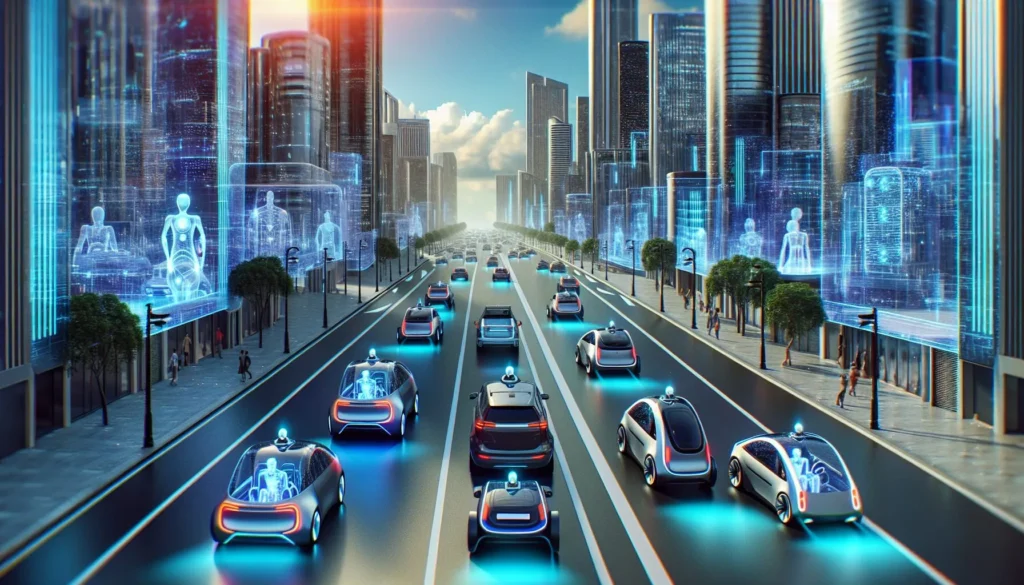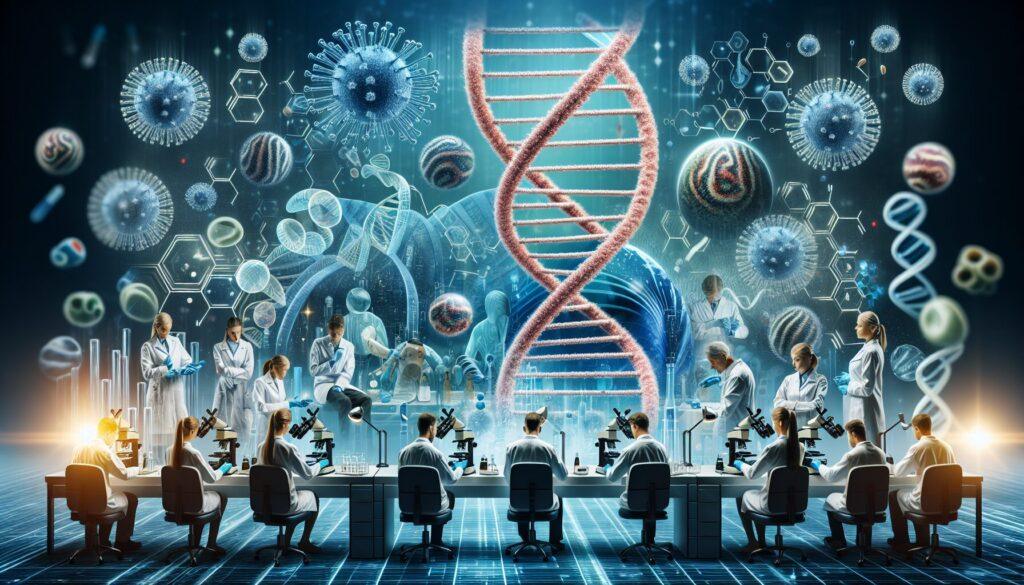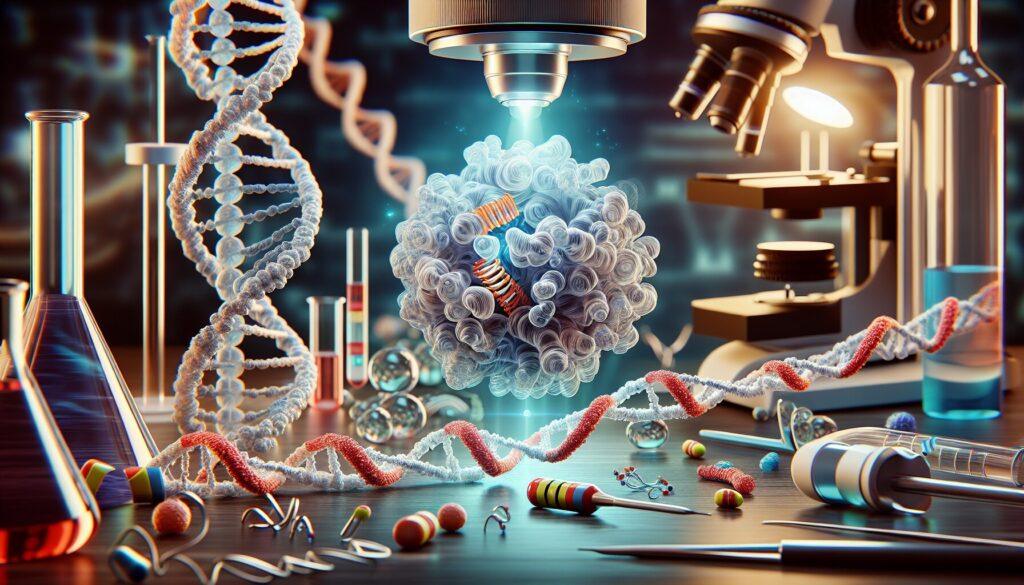CRISPR and Ethics:
Hey there! 🤗 IJust wanted to dive into the fascinating world of CRISPR, the groundbreaking gene-editing technology that’s been making waves in the scientific community. It’s like having the ultimate pair of molecular scissors, allowing us to cut and paste DNA with unprecedented precision.
But hold on a sec, because with great power comes great responsibility, right? As we venture further into the possibilities of altering our very blueprint, the ethical implications are as complex as the DNA helix itself. We’re talking designer babies, the potential to eradicate diseases, and the age-old debate of what it means to be human.
So, let’s unpack this genetic Pandora’s box together and explore the moral maze that is CRISPR ethics. 🧬✂️🤔 Imagine having the ability to edit genes as simply as chopping and pasting textual content in a document. Sounds like sci-fi, proper? Well, because of CRISPR expertise, it’s changing into an actuality!
But with great power comes great responsibility. As we stand on the brink of this genetic revolution, we must ask ourselves: Who gets to wield this power, and for what purposes? The potential to eradicate genetic diseases and enhance human capabilities is tantalizing, yet it’s accompanied by the specter of eugenics and the commodification of life itself.
Ethicists and scientists alike grapple with these questions, striving to find a balance that safeguards our humanity while embracing the unprecedented possibilities that CRISPR offers.
But with nice energy comes nice accountability, and that’s the place where the ethics of CRISPR come into play. Buckle up; as a result, we’re diving into the fascinating world of CRISPR and Ethics with insights from the Innovative Genomics Institute. 🚀
What is CRISPR, Anyway? 🧬
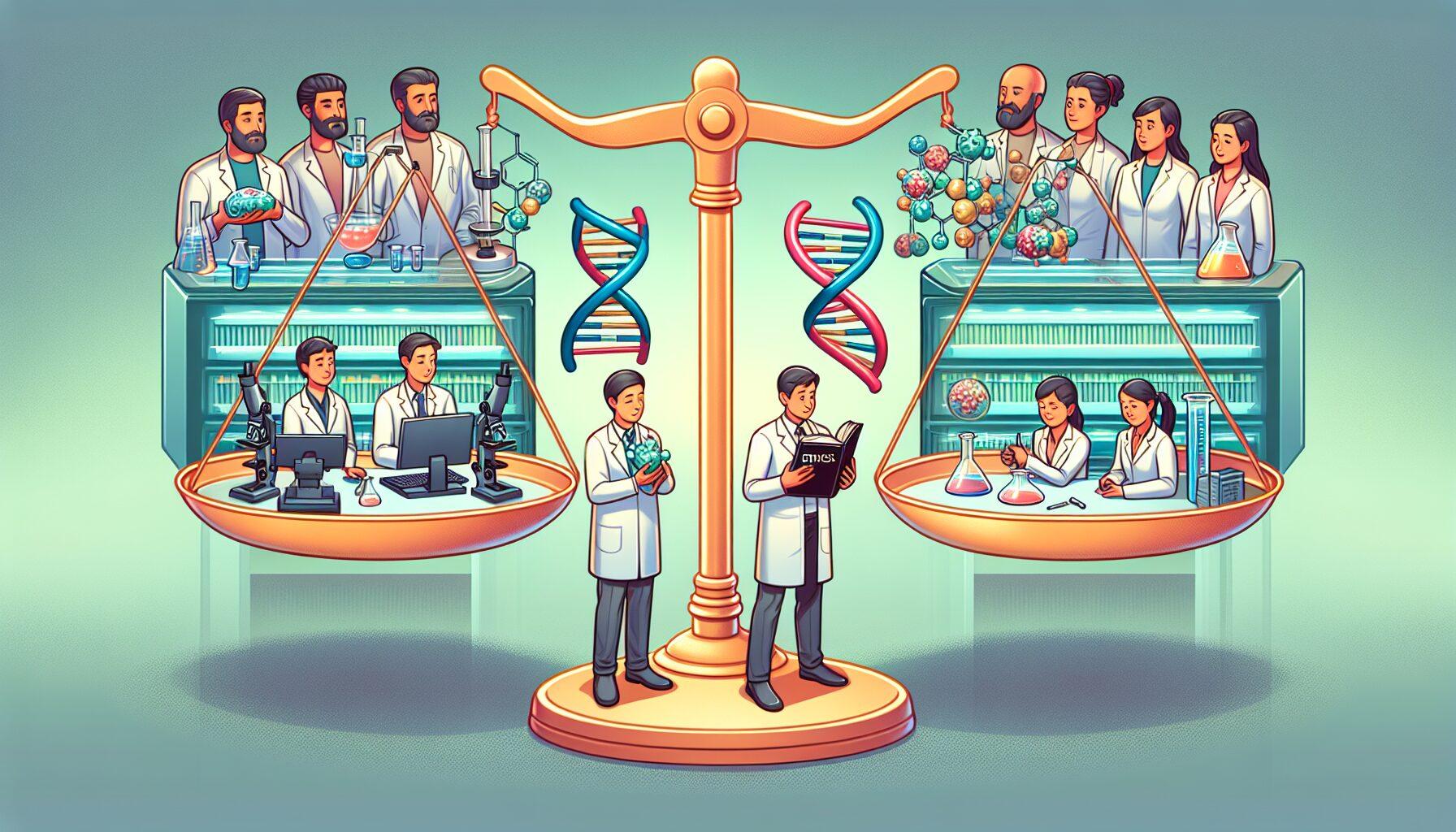
Next paragraph: ### CRISPR, short for Clustered Regularly Interspaced Short Palindromic Repeats, is akin to a molecular Swiss Army knife for geneticists. This groundbreaking technology allows scientists to edit genes with unprecedented precision, almost as if they’re using a pair of molecular scissors to snip and replace strands of DNA.
It’s a game-changer in the field of genetics, offering the potential to cure genetic diseases, enhance crop resilience, and even eradicate invasive species. But as we wield this powerful tool, we must tread carefully, pondering the moral implications of rewriting the very code of life. 🤔
So, what’s the big deal with CRISPR? In easy phrases, CRISPR is software that enables scientists to edit genes with precision. Think of it as a pair of molecular scissors that may lower DNA at a selected spot.
The excitement around CRISPR technology stems from its potential to revolutionize medicine and agriculture. By snipping out genetic defects, we could eradicate hereditary diseases or create crops that withstand harsh climates.
However, this power also comes with significant ethical questions, such as the potential for unintended consequences in the gene pool and the moral considerations of ‘designer babies. ‘It’s already revolutionizing the whole lot, from agriculture to drugs. But keep up; earlier than you begin dreaming about superpowers, let’s chat about the moral implications.
Fun Fact: Indeed, the advent of AI personalization in the realm of genetics raises a plethora of ethical questions that we must grapple with as a society. Should we allow the alteration of human DNA for enhancements beyond medical necessity, potentially sparking a new form of inequality based on genetic modifications?
As we navigate this brave new world, it’s crucial that we establish guidelines to prevent the misuse of such powerful technology, ensuring that the benefits of AI-driven personalization in genetics are accessible and ethical for all, not just a select few who can afford them.
After all, the very fabric of what it means to be human could be at stake, and it is our collective responsibility to tread this path with caution and conscientiousness. Did you realize CRISPR stands for “Clustered Regularly Interspaced Short Palindromic Repeats”? Try saying that on 5 occasions quickly! Learn more on Wikipedia.
The Ethical Maze: Why Should We Care? 🤔
Navigating the ethical labyrinth of AI personalization is akin to walking a tightrope between innovation and intrusion. As we harness the power of algorithms to tailor experiences down to the individual quirks of our digital selves, we must pause to consider the implications. Are we simply making life more convenient, or are we inadvertently paving the way for a surveillance state dressed in bespoke digital clothing?
The balance between personalized utility and privacy is delicate, and the scales tip with every new technological advance we integrate into our daily lives. Alright, let’s get actual. CRISPR isn’t nearly breakthroughs and headlines. It’s about the nitty-gritty moral dilemmas that come with such highly effective expertise. Here are several brain teasers:
1: Designer Babies: Next paragraph: The concept of ‘Designer Babies’ opens a Pandora’s box of ethical questions. Should parents have the right to not only select for health-related genetic traits but also for aesthetic preferences or talents? This possibility edges us closer to a future where the socio-economic divide could be exacerbated by genetic stratification, leading to a new form of inequality based on one’s engineered genetic makeup.
As CRISPR technology advances, society must grapple with the implications of allowing such personalization in human genetics and where to draw the line between therapeutic interventions and enhancement. Should we enable genetic enhancement to create “designer infants” with particular traits? It’s like selecting toppings on a pizza, however, you realize, with people.
2: Gene Drives: Gene drives represent a significant leap in our ability to influence genetic outcomes, not just for individuals but potentially for entire species. By biasing the inheritance of certain genes, we can theoretically eradicate diseases, control pest populations, or even reverse the effects of harmful mutations.
However, this power also comes with profound ethical considerations – the long-term ecological consequences are unpredictable, and the moral implications of exerting such control over life are contentious.
The debate intensifies when we consider the potential for unintended spread of gene drives beyond target populations, possibly leading to ecological disruptions on a global scale. Imagine releasing genetically modified mosquitoes to finish malaria. Cool, proper? But what if it messes up the ecosystem?
3: Unintended Consequences: The perils of unintended consequences cannot be overstated when it comes to AI personalization. As we integrate artificial intelligence into our daily lives, tailoring experiences to individual preferences and behaviors, we must be vigilant about the ripple effects.
Just as a gene drive could potentially run amok in the natural world, AI algorithms, if not carefully monitored and controlled, could lead to a cascade of unforeseen issues, from privacy invasions to the amplification of biases, ultimately challenging the very fabric of society. What if a gene edit goes rogue? Think Frankenstein, however, with DNA.
Real-Life Case Studies 📚
The Case of Lulu and Nana: In November 2018, the world was shaken by the announcement of the birth of Lulu and Nana, twin girls whose genes had been edited using CRISPR technology to make them resistant to HIV. This case, led by Chinese scientist He Jiankui, sparked a global debate over the ethics and safety of gene editing in humans.
The experiment, conducted in secrecy and without the oversight of the global scientific community, highlighted the profound implications and potential risks associated with the personalization of our genetic makeup.
In 2018, a Chinese scientist used CRISPR to edit the genes of dual ladies, aiming to make them immune to HIV. The world responded with a collective gasp, elevating questions on consent and long-term results. Read more about it here.
Agricultural Innovations: The ethical implications of such genetic editing are profound, sparking debates on the boundaries of science and the sanctity of human life. While the potential benefits are tantalizing – imagine crops that can withstand climate extremes or the eradication of hereditary diseases – the risks are equally significant.
Unintended consequences could emerge generations later, and the possibility of creating a societal divide between those with access to genetic enhancements and those without is a real concern.
As we tread into this brave new world of genetic personalization, it is imperative that we navigate with caution, ensuring that regulations and moral considerations keep pace with technological advancements. CRISPR is being used to create crops that may stand up to harsh climates. While this looks as if a win for meal safety, it raises issues about biodiversity and company management of seeds.
Breaking Down the Debate: A Thematic Table
| Ethical Concern | Description | Real-World Impact |
|---|---|---|
| Human Enhancement | Editing genes for non-therapeutic enhancements, like intelligence or look. | Could result in inequality and social division. |
| Biodiversity | The threat of dropping genetic range by widespread genetic modifications. | Potential lack of pure species variants. |
| Access & Equity | Who will get to make use of CRISPR expertise and who doesn’t? | Could widen the hole between the wealthy and the poor. |
Tips for Navigating CRISPR Ethics 🌱
📝 Stay Informed: 🔬 Engage in Dialogue: It’s imperative that we foster an inclusive conversation around CRISPR, involving scientists, ethicists, policymakers, and the general public. By doing so, we can ensure that diverse perspectives are heard and that the ethical implications of gene editing are thoroughly considered.
This dialogue should also strive to be global, recognizing that decisions made in one part of the world can have far-reaching consequences for humanity as a whole. Keep up with the newest analyses and debates.
🤝 Engage in Dialogue: 🌐 Foster Inclusivity: As we navigate the complexities of gene editing, it is crucial to ensure that the conversation is not dominated by a single narrative or limited to the perspectives of a few. Inclusivity means bringing diverse voices to the table, including those from different socio-economic backgrounds, cultures, and disciplines.
By embracing a multifaceted approach, we can better understand the full spectrum of ethical considerations and ensure that the benefits of gene editing are accessible to all, not just a privileged few. Join discussions and boards to share your views.
🔍 Consider the Consequences: Reflect on the Long-Term Impact: As we delve deeper into the realm of gene editing, it’s imperative to think beyond immediate results and consider the long-term implications of our actions. Will the alterations we make today pave the way for unforeseen consequences in future generations?
It is our responsibility to weigh the potential for both positive advancements and negative repercussions, ensuring that our pursuit of scientific breakthroughs does not inadvertently compromise the genetic diversity that is essential to human resilience and adaptability.
Engaging with a broad range of experts in fields such as ecology, evolutionary biology, and sociology can provide valuable insights into the far-reaching effects of our genetic interventions. Think about long-term impacts, not simply quick advantages.
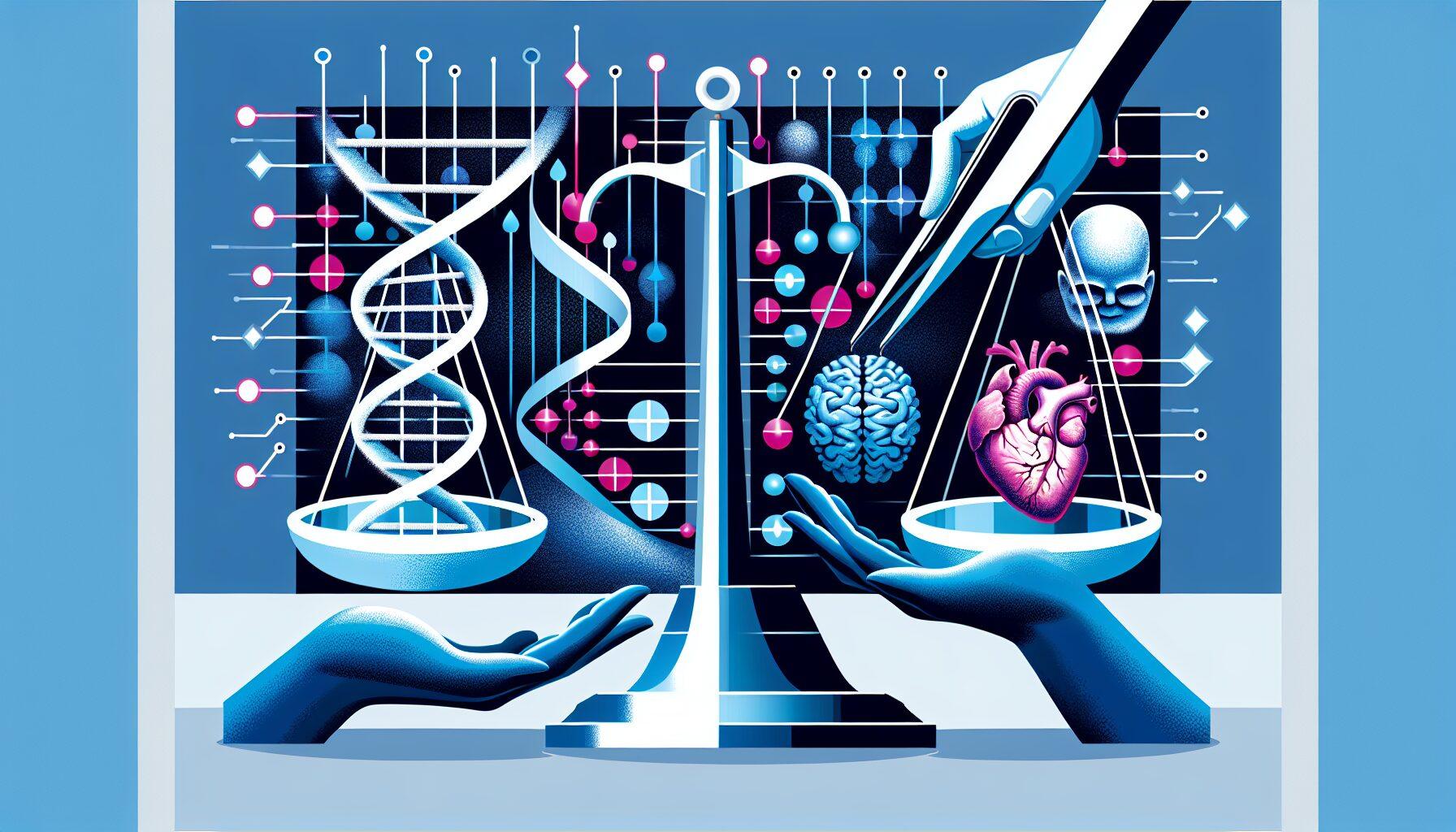
FAQs About CRISPR & Ethics
Q: Can CRISPR treat genetic ailments?
A: A: Absolutely, CRISPR holds the potential to treat a myriad of genetic ailments by precisely editing the DNA sequences responsible for these conditions. Diseases like cystic fibrosis, sickle cell anemia, and muscular dystrophy, which have long been challenging to address, may soon be manageable or even curable thanks to this groundbreaking technology.
However, while the therapeutic promise is immense, it is accompanied by ethical considerations that must be carefully weighed, such as consent, accessibility, and the implications of germline editing which can affect future generations. Potentially sure! But it’s nonetheless at the experimental level for a lot of situations.
Q: Is CRISPR protected?
A: The safety of CRISPR technology is a complex issue that hinges on multiple factors, including the context of its application and the precision with which it is employed. While CRISPR has the potential to introduce targeted modifications with high accuracy, off-target effects—where unintended parts of the genome are edited—can pose significant risks.
Researchers are continuously working on improving the fidelity of CRISPR systems to minimize these risks, but as with any powerful tool, strict safety protocols and regulatory oversight are essential to ensure its responsible use. Like any new expertise, it has dangers. Scientists are working arduously to make it safer.
Q: Who regulates CRISPR use?
Regulation of CRISPR usage varies by country, with each nation implementing its own set of guidelines and oversight mechanisms. In the United States, for instance, several federal agencies including the Food and Drug Administration (FDA)
The National Institutes of Health (NIH), and the Department of Agriculture (USDA) play a role in overseeing different aspects of CRISPR applications, from clinical trials in humans to modifications in crops and livestock.
Internationally, the World Health Organization (WHO) and the United Nations (UN) are also seeking to establish global standards and ethical guidelines to prevent misuse and encourage safe practices in gene editing technologies. Various nationwide and worldwide bodies; however, regulation continues to be evolving.
Wrapping It Up 🎁
As we navigate this complex landscape, the importance of public discourse cannot be overstated. It is crucial for scientists, ethicists, policymakers, and the broader community to engage in open, informed conversations about the implications of gene editing.
By fostering a collaborative environment, we can work towards a consensus on how to responsibly harness the power of these technologies for the betterment of society, while also addressing potential risks and ethical concerns.
CRISPR is like the new child on the block who’s tremendously good but additionally a bit unpredictable. As we discover the potentialities, it is essential to think about the moral panorama. By staying knowledgeable and engaged, we will be certain that CRISPR is used responsibly and ethically. Ready to hitch the dialog? Let’s chat! 🍿

